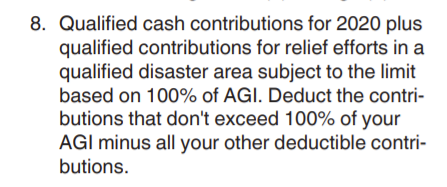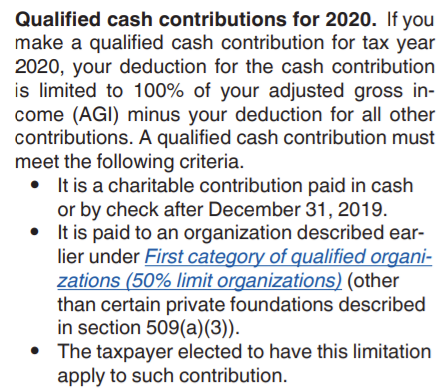Update: The bounty has now been paid out, $500 to each of two people who quickly supplied convincing "yes" answers (one here, one privately).
Hey, Forum!
A small private foundation I work with is struggling with a really hard tax question. Depending on the answer, we may end up giving a lot more this year (vs. many years in the future after the foundation heads retire).
If we get a convincing, well-sourced answer, whoever first shared it will get $500.
(The amount is set a bit low because I'd prefer an answer to be "someone who already knows sharing their knowledge" rather than "an amateur doing hours of research". Since I'm already an amateur doing hours of research, I worry that if I've made a mistake, another amateur might make the same mistake I did. Also, I think the kind of answer I list below will be more likely to convince the foundation heads than research from someone without subject-matter expertise.)
We are most likely to be convinced by an answer if the person sharing it has either dealt with this situation themselves, knows someone who has, can show us a convincing source that refers to a situation closely matching ours, or has experience in tax law.
The question:
- The foundation heads have $1.9 million of adjusted gross income (AGI) to give away this year.
- They want to split this between charitable giving and donations into the foundation, because they haven't yet found $1.9 million in opportunities they like.
- In 2021, cash donations to public charities can be deducted for up to 100% of AGI. That means we could give $1.9 million to charity and have it all be deductible.
- However, cash donations into private foundations can only be deducted up to 30% of AGI. So we can only give $570,000 to the foundation before further donations aren't deductible.
- But if we donate $570,000 to the foundation and $1.33 million to charity, for a total of $1.9 million, is that entire amount still tax-deductible?
IRS publication 526 seems to imply this. From the leftmost column of page 17:

And from page 15:

One accountant we spoke with believes that we can deduct all $1.9 million even if we split it between the foundation and charities, as long as we don't exceed $570,000 in foundation giving.
Another accountant believes that making any contribution to the foundation will "turn off" our ability to make a qualified cash contribution under the 2020/2021 rules, such that our charitable contributions will be subject to the 60% of AGI limit that applied before 2020.
As far as I can tell, the first accountant is right, but I could easily be missing some special exception that would make the second accountant right. I don't have any relevant experience aside from reading the publication (and a bunch of secondary sources that didn't help).
Can anyone help us resolve this?

Thanks, Stuart! This answer was outstanding. I'll follow up with you privately about the bounty payment.